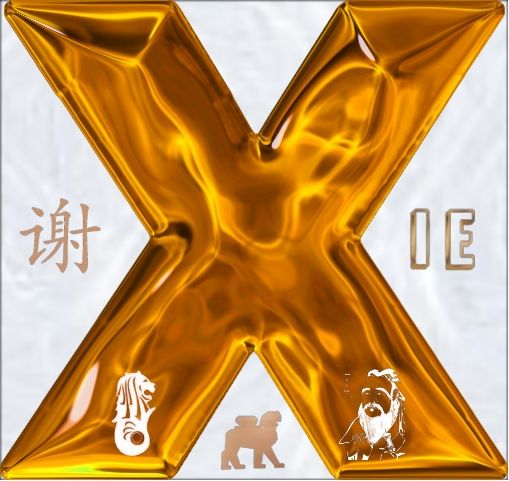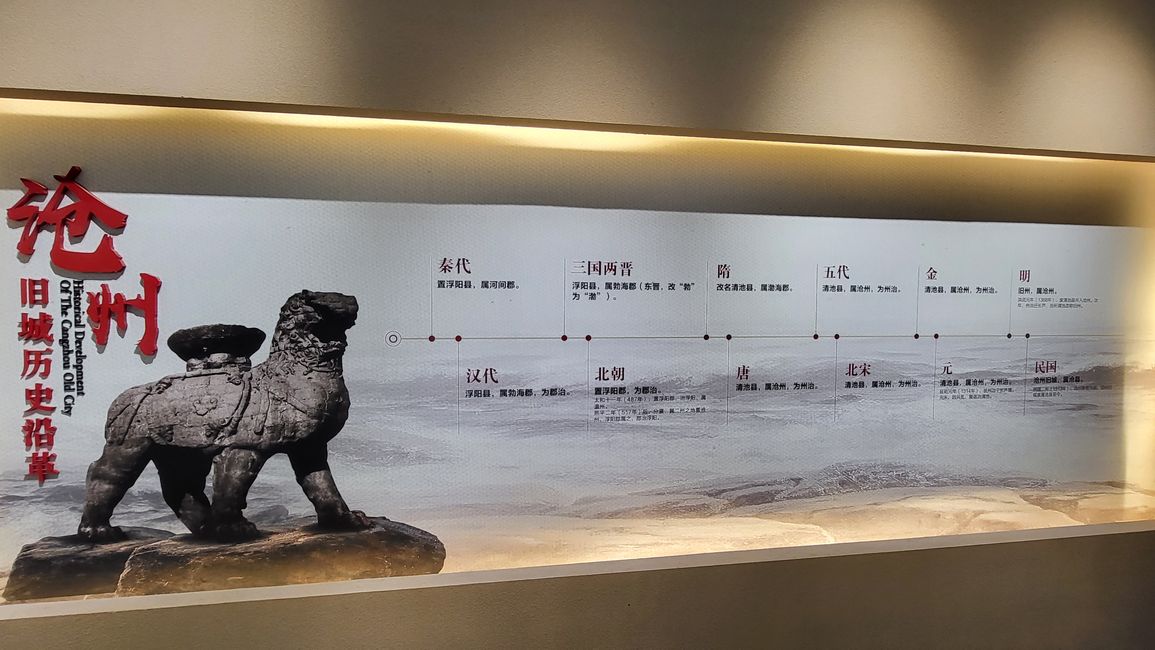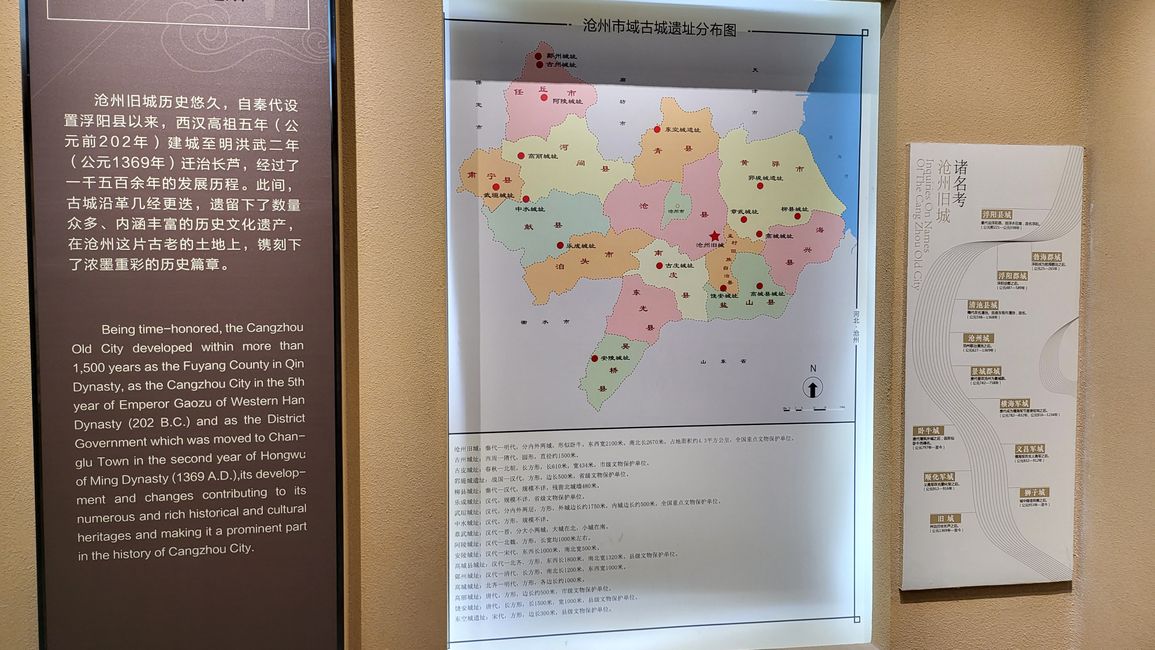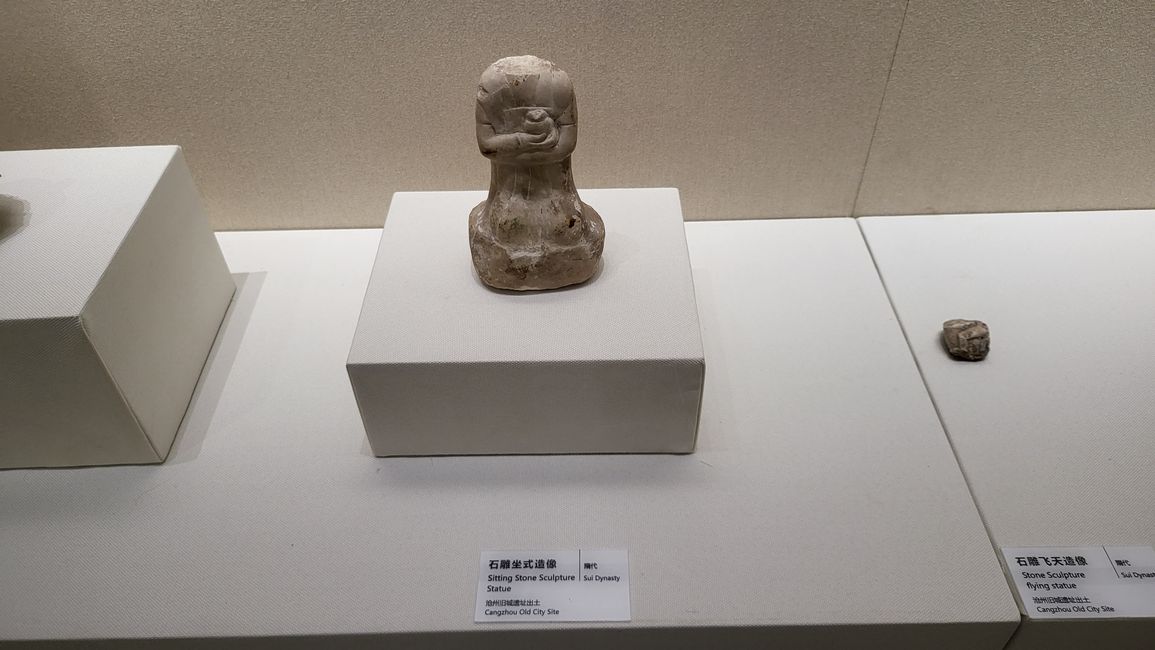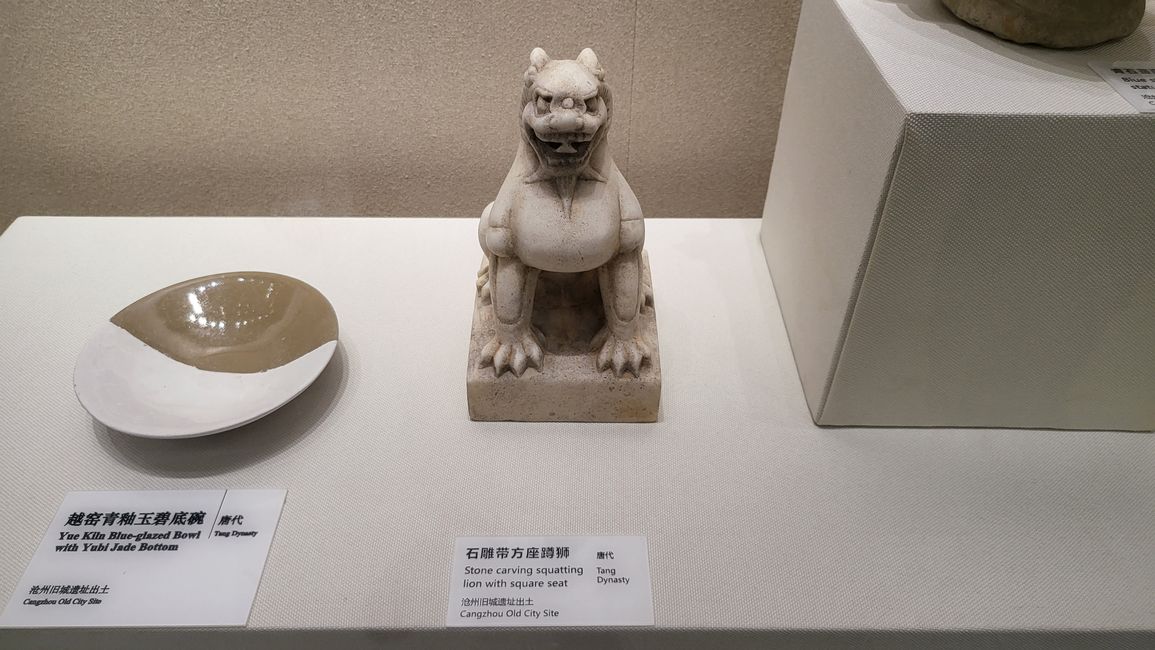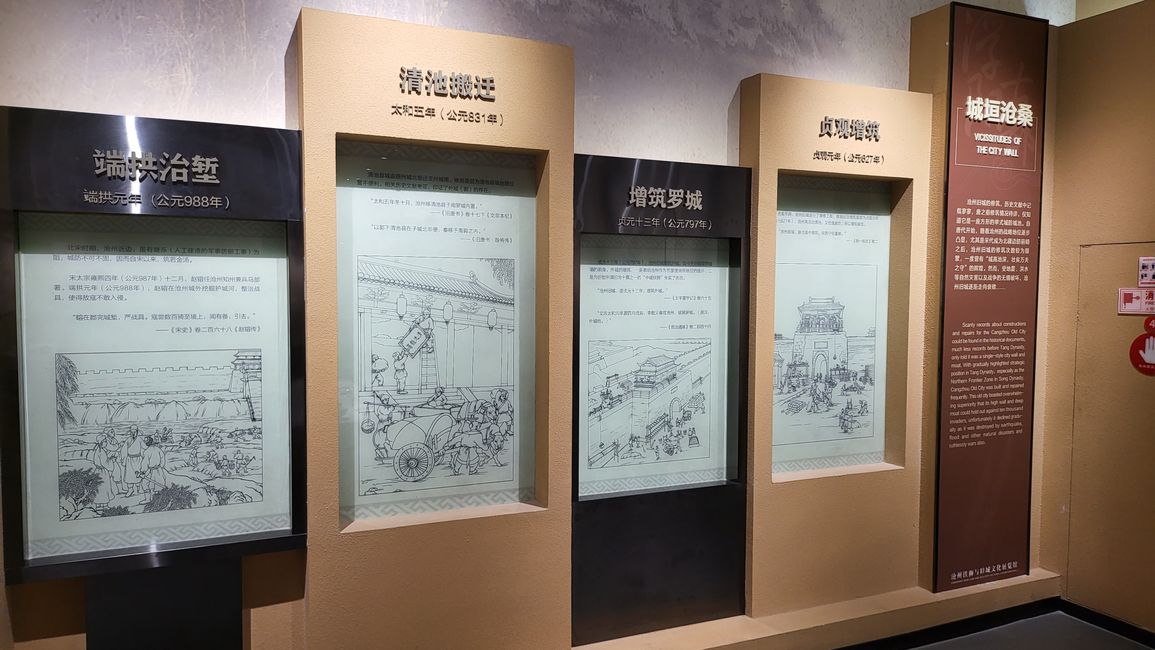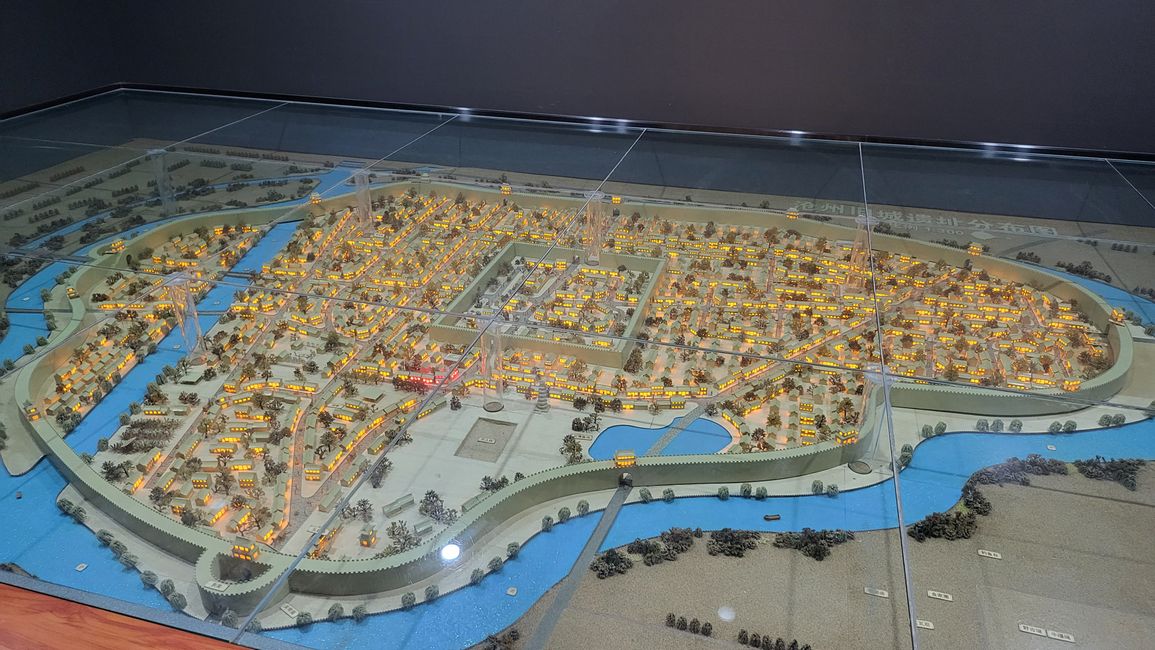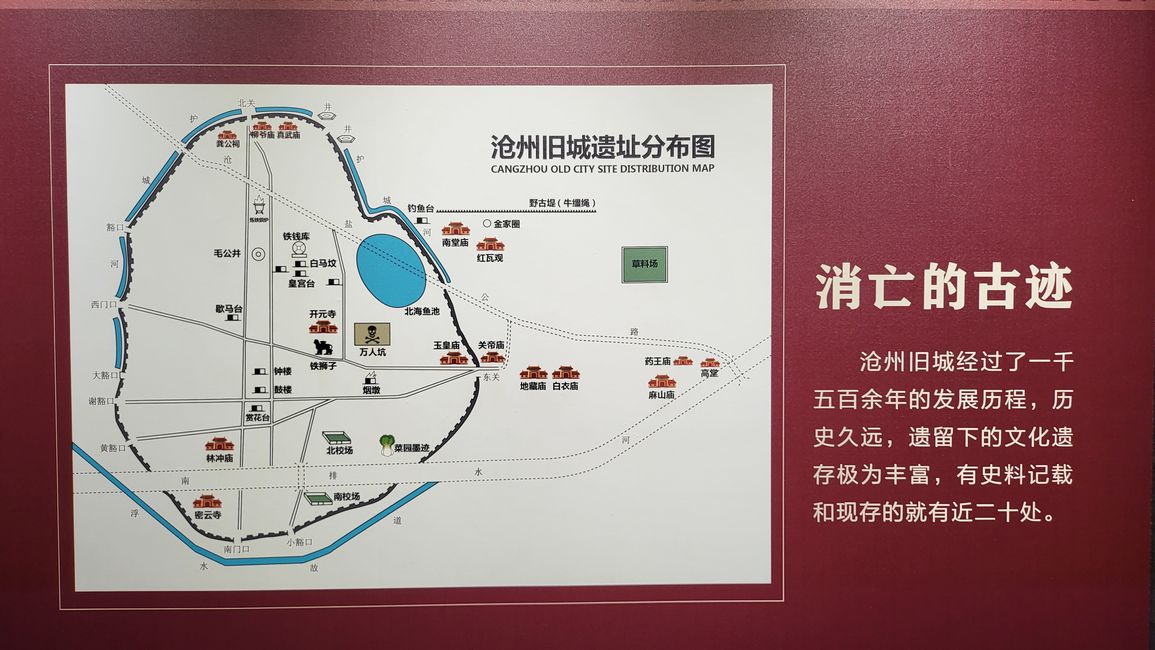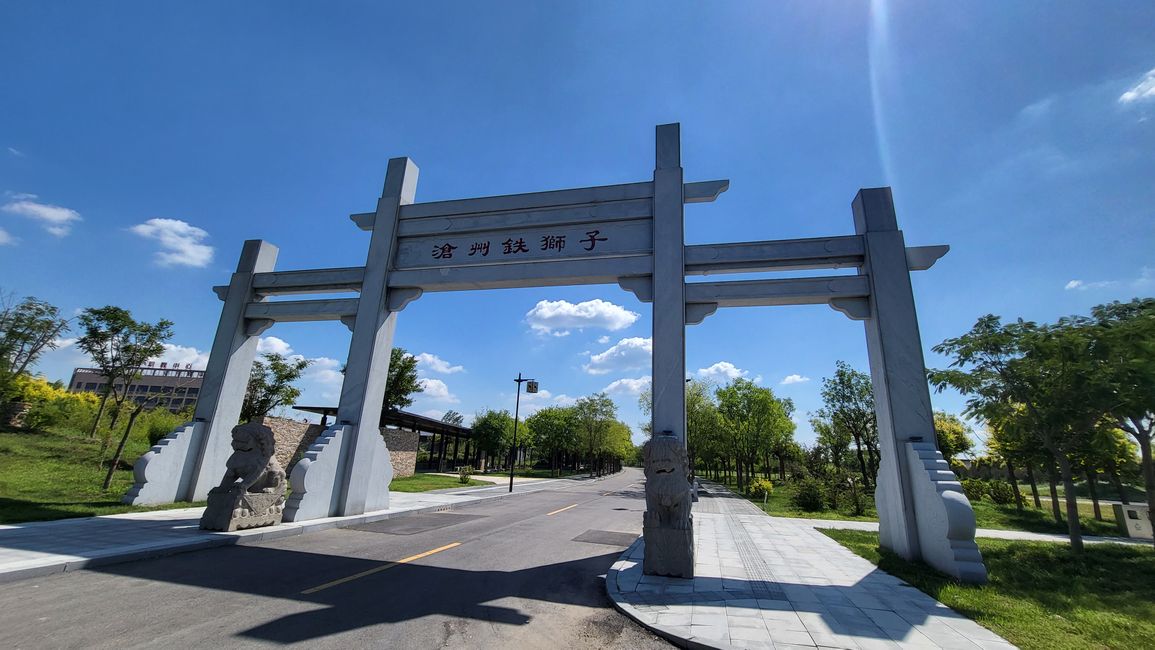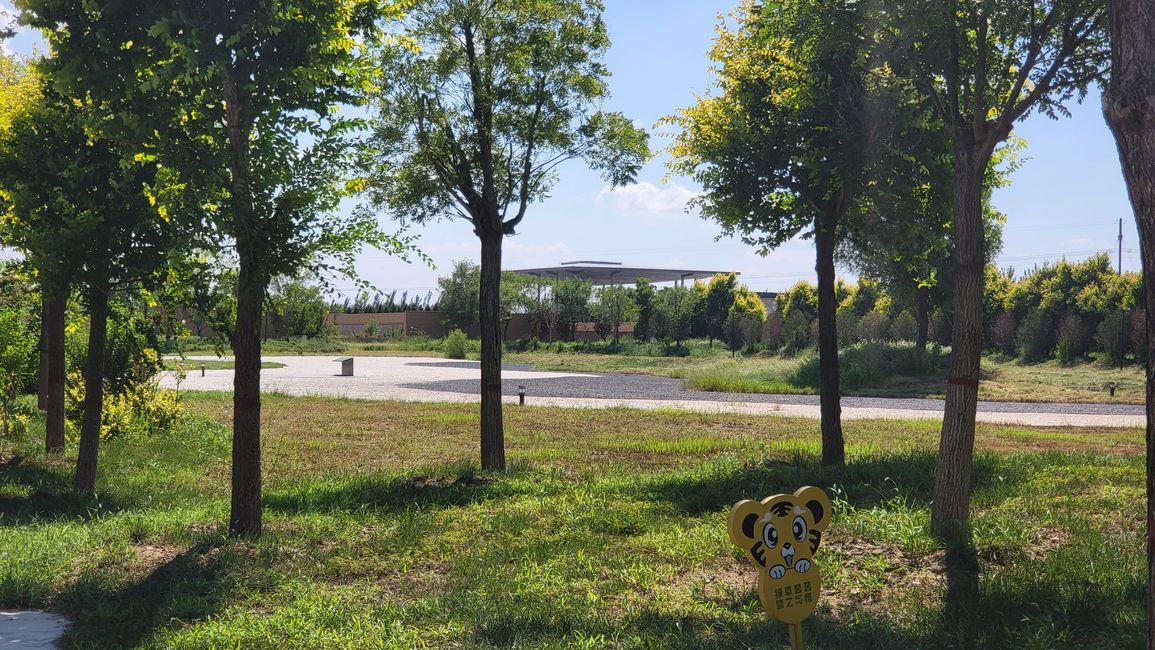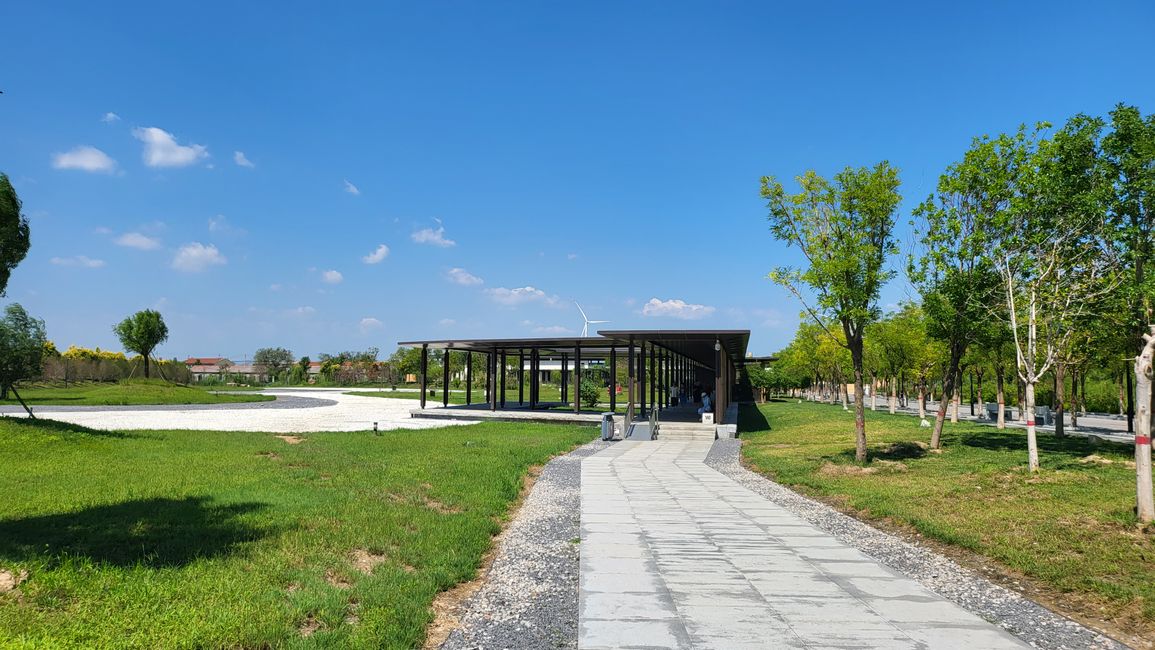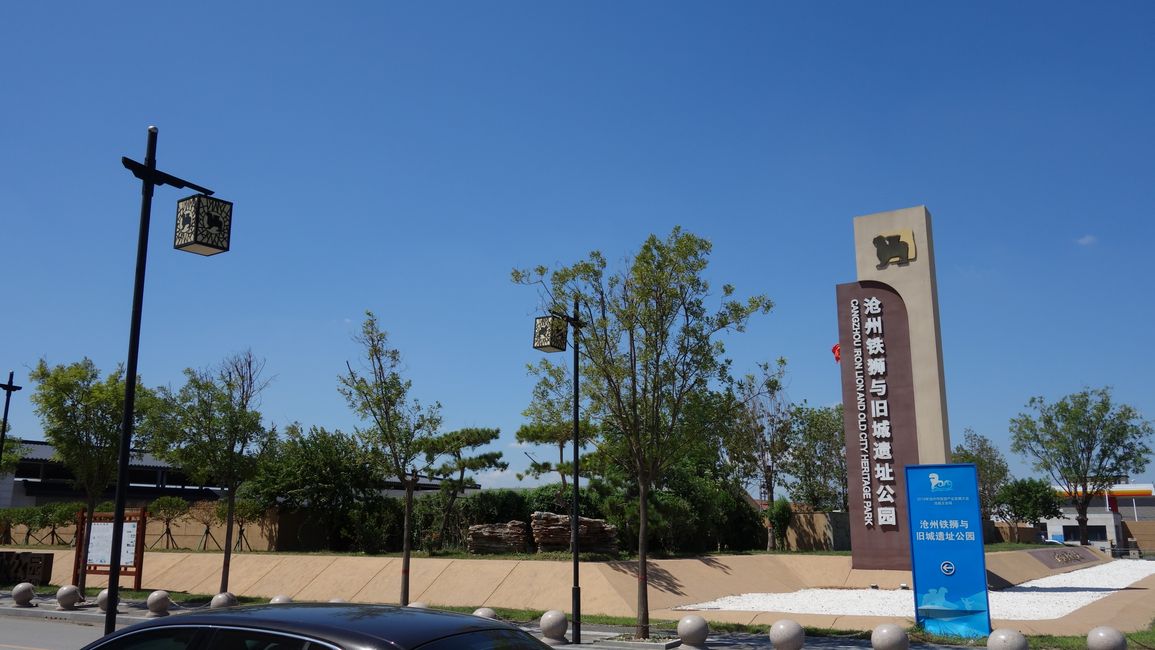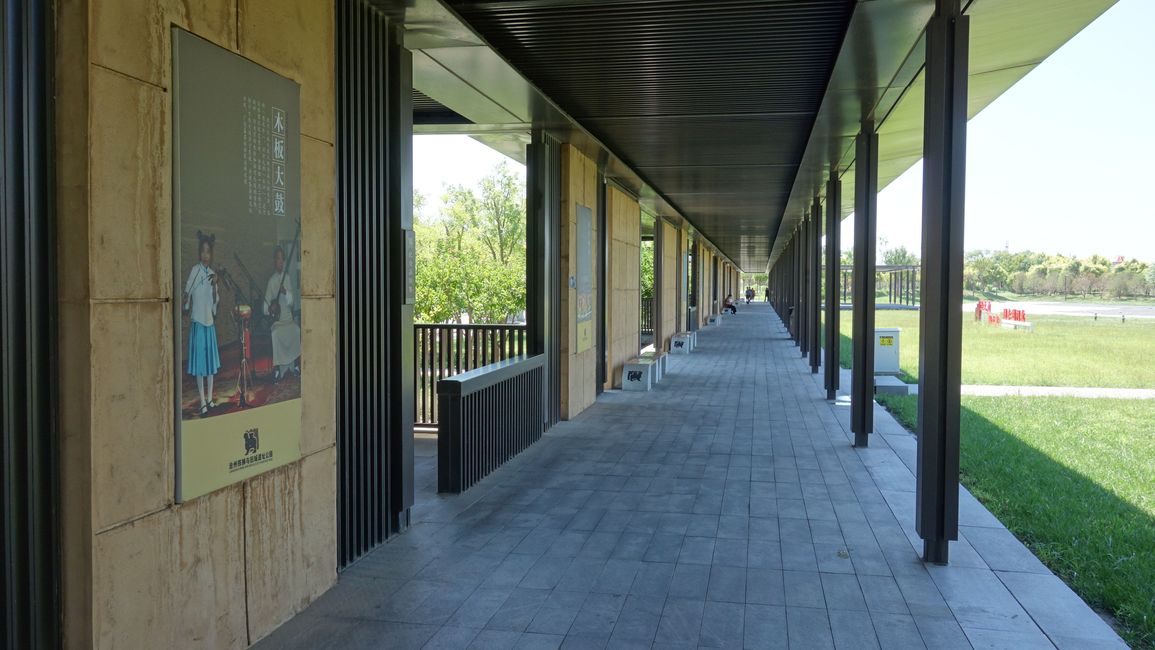History of Cangzhou
ପ୍ରକାଶିତ |: 14.08.2024
Cangzhou has a history of more than 1,500 years. In ancient times, the city was known as Fuyang and Qingchi. During the glorious reign of Emperor Taizong of the Tang Dynasty (years 627–649), Cangzhou was developed into a prefectural city, and significant fortifications were strengthened, especially during the later Zhenyuan era of the Tang Dynasty (year 797). Even afterward, during the Song Dynasty (years 960 to 1279), Cangzhou was an important city, undergoing multiple renovations and the city walls were constructed from rammed earth and a moat. According to tradition, this fortification system could withstand tens of thousands of attackers. Unfortunately, it was gradually destroyed by floods, earthquakes, and numerous wars. The archaeological relics found over the years, such as porcelain shards and figures, and ceramic inscriptions testify to the city's prosperity. Old claystones, which were used as cannonballs in catapults, also provide evidence of the many battles for the city.
In the middle of the Yuan Dynasty (years 1279 to 1368), after the Grand Canal was straightened from Beijing to Hangzhou, the economic focus of Cangzhou gradually shifted towards the banks of the canal. In the first year of Emperor Hongwu's reign in the Ming Dynasty (year 1368), the regional government was permanently moved to the canal, and the old city center gradually fell into decay. Today, however, this old city is an important part of the historical consciousness of Hebei Province. Therefore, this old town center around the Iron Lion has been transformed into a heritage exhibition site, the 'Iron Lion Park.'
ଉତ୍ତର
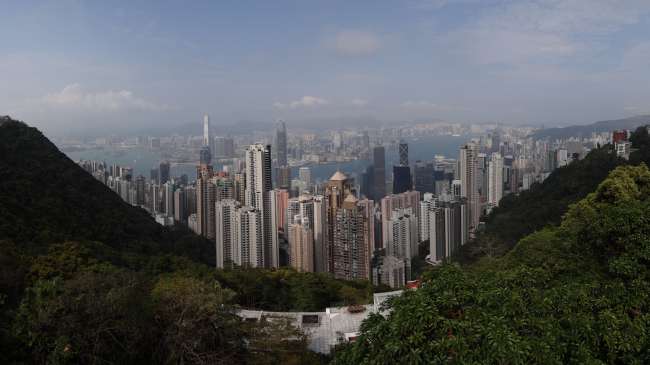
ଭ୍ରମଣ ରିପୋର୍ଟ ଚୀନ୍

